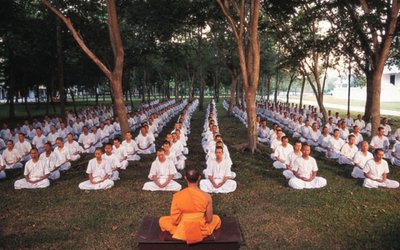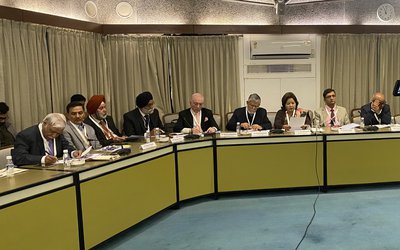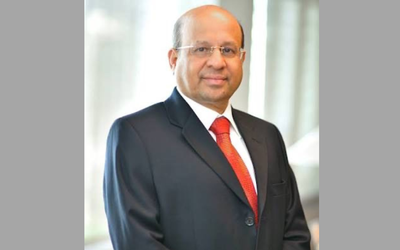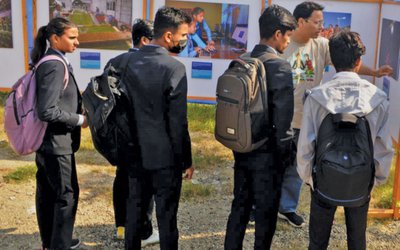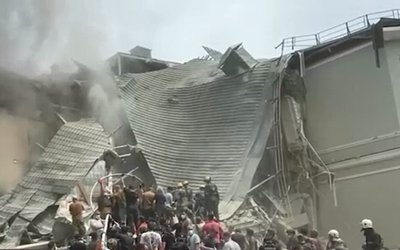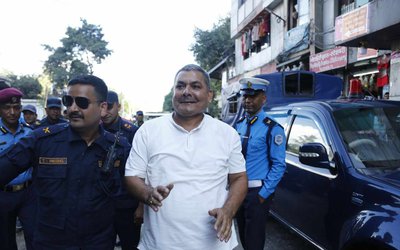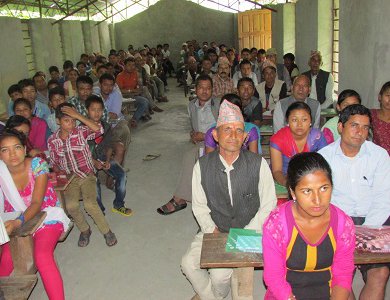
Enhancing the dignity of Nepali citizens is the key priority of politicians. Democracy grows with active role of citizens in everyday life of society, not in their passivity. An informed citizenry, however, requires knowledge to overcome self-subordination at various spheres of life, acquire inner vigilance and know about the working of various principles, institutions and actors of society, economy and polity.
A democratic rule always follows a set of constitutional and human rights and responsibilities. Citizens enjoy law-based freedom and settle their problems through compromise of interests in the optimal satisfaction of all sides including taking into account the aspirations of younger generation of citizens. Democracy also fosters civic culture of communication and legislates peaceful change through a constant feedback between the leaders and ordinary public. It makes the institutions resilient and adaptive to changing ecological, social, economic, technological and political circumstances. Only an effective state can fulfill all the rights of citizens and draw their loyalty to the public order. Hence strengthening a constitutional state is of utmost priority to move the country to civil peace, justice and democracy.
A school teacher Nir Man Basnet said technical, professional and civic education should go together in Nepal in the process of building the modern state. National education system should be standardized to foster equality and dignity of all citizens.
Basnet was speaking at a two-day seminar organized by Friedrich-Ebert-Stiftung at Singati, Dolakha on June 28-29 where 143 persons including 51 women took part. Participants were mostly school and college teachers, politicians, local government officials, police, health workers, community leaders and students.
Four resource persons-Dev Raj Dahal, Kashi Raj Dahal, Yubaraj Ghimire and Chandra Dev Bhatta discussed civic education and state building, constitution drafting process, principles of democracy and media’s role in enlightening the citizens about various constitutional issues. Presentations were followed by intensive discussions.
Amit Acharya asked who is responsible for so low tax ratio in the country. He related tax with the governance system and subsidy to the needy and the state’s ability to take independent action.
Ghanashayam Khadka sought explanation that under such a low tax regime what kind of federalism will be suitable for Nepal? Leader of CPN-UML Kumar Khadka worried about the internecine fight of central leaders over the same issues of federalism, forms of governance, judicial autonomy and political pluralism that led to the downfall of first Constituent Assembly. He inquired is there no learning effect on top leaders from the past and added: will there be another revolt in the offing as parties’ constellations are frequently changing? Dil Krishna Malla, however, stressed on the need for harsh punishment for corrupt so that condition for development is created for the people within the country and they don’t have to migrate abroad for livelihood. Mahesh Malla, a teacher of local school, saw linkages between internal and external factors which is responsible for the delay in constitution drafting. Yubaraj Khatri, a student, sought the role of civil society to transform pacifism of people into optimism so that democracy becomes robust in the country. He wanted a changed game.
The main concerns of participants were whether the constitution will be drafted in time, whether local election will take place, how can conflict on many contentious issues such as federalism, governance, election system, politicization of judiciary, local election, citizenship and livelihood be resolved, what is secularism in Nepal’s context, what is the importance of roundtable dialogue, what kind of environmental, educational and health policies will be suitable for Nepal? Some participants asked about the prospect of gender equality while others stressed on making politicians responsible for the future.
Sundar Khadka, Sangita Lama, Nidhi Raut, Ram Krishna Thani, Prakash Khanal, Parvati, Sharada Thakuri, Karuna Khadka, Raju Lama, Ghanashayam Pathak, and many others took part in the discussion. The Program was chaired by Campus Chief of Pratap Multiple Campus, Puspa Raj Basnet. He said that civic education is important for promoting law-abiding behavior of all the actors of society because it helps to maintain a balance between the body, mind and spirit in pursuit of the good life.
- SWISS SUPPORT: Construction Of A Trekking Trail In Koshi
- Dec 19, 2024
- PM OLI'S VISIT TO CHINA: BRI Agreement
- Dec 16, 2024
- RASUWAGADHI AND SANJEN: Begin Generation
- Dec 03, 2024
- NEPAL, INDIA ELECTRICITY TRADE Nepal's Advantage
- Dec 02, 2024
- PM Oli'S VISIT TO CHINA: Nepal's Dilemma
- Dec 01, 2024

